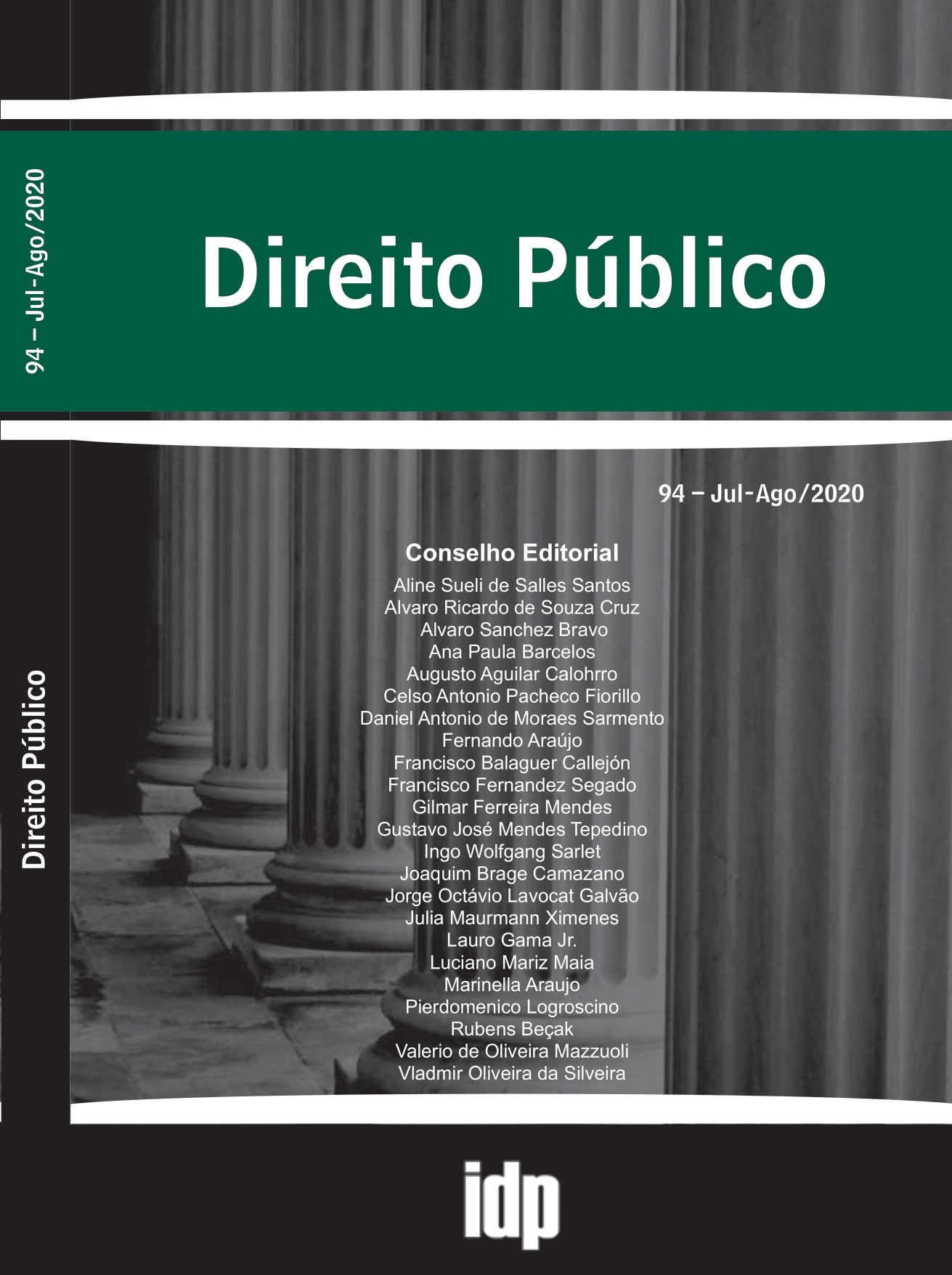FAKE NEWS AND INFODEMIA AT THE TIME OF COVID-19
Palavras-chave:
fake news, disinformation, covid19Resumo
The essay has as its object fake news and excess of pieces of information with particular attention to the pandemic emergency we are currently living: COVID-19. After a careful consideration about what fake news actually are, the paper analyzes the pitfalls concerning the communication through virtual technologies, where social networks let the news reach the user only if they pass some requirements, in order to give the user a personalized experience of being informed. As a result, the profiling process traps the user in a cage, which is a paradox, because the internet it’s literally supposed to be without borders and barriers. The current crisis caused by the global pandemic has brought to light how dangerous disinformation and fake news are, how important it is to find possible remedies and why they have to be adjusted carefully. Among these, the author identifies a rating system of the main sources of information available online; the system is supposed to be entrusted to an impartial institution, that would have the function of fact-checking.
Downloads
Referências
ADINOLFI, M. are they all right? Postverità, Fake news, Big Data and Democracy, Salerno editrice, Rome, 2019.
ARENDT, H. Verità e politica, edited by V. Sorrentino, Bollati Boringhieri editore, 1995.
BALAGUER CALLEJÓN, Francisco. Forgotten Solidarity: The failure of the public narrative on the coronavirus, in la Costituzione.info, March 20, 2020.
BECCHETTI, L. Avvenire.it, 5 February 2020.
CAVINO, M. Spielberg's Triceratops. Fake news, law, and politics, in www.federalismi.it, no. 11/2020.
CROCE, M.; PIAZZA, T. Epistemology of fake news, in Intelligent Systems 31/2019.
CUNIBERTI, M. Il contrasto alla disinformazione in rete tra logiche del mercato e (vecchi e nuove) velleità di controllo, in MediaLaws, 1/2017.
D'AGOSTINI, F.; Diritti aletici, in Biblioteca della libertà, 1/2017, n. 218.
D'AGOSTINI, F.; GRONCHI, J. Philosophy, Truth and Democracy, in www.federalismi.it, 11/2020.
D'AGOSTINI, F; FERRERA, M. The truth in power. Sei diritti aletici, Einaudi, 2019.
DARNTON, V. R. The True History of Fake News, in the New York Review of Books, 2017.
DORATO, M. Disinformazione scientifica e democrazia. La competenza dell'esperto e l'autonomia del cittadino, Raffaello Cortina editore, Milano, 2019.
FERRARIS, V. M. Postverità e altri riddigmi, Bologna, Il Mulino, 2017.
FUMO, M. Bufale elettroniche, repressione penale e democrazia, in Media Laws, 1/2018.
HEIDEGGER, M. On the Essence of Truth, tr.it. U. Galimberti, Brescia, 1973.
KELLER, D. << Making Google the Censor>>, in New York Times, June 12, 2017.
LEHNER, E. Fake news and democracy, in Media Laws, 1/2019.
MARTUSCIELLO, A. La rete. Manipulation or pluralism? Il chaos of information, Armando editore, Rome, 2019.
PASSAGLIA, P. Fake news and fake democracy: a convergence to be avoided, in www. federalismi.it , 11/2020.
PINELLI, C. Postverità, verità, e libertà di manifestazione del pensiero, in MediaLaws, 1/2017.
PITRUZZELLA, G. Freedom of Information in the Internet Age, in PITRUZZELLA, G.; POLLICINO, O.; QUINTARELLI, S. Words and Power. Freedom of expression, hate speech and fake news, Egea editore, 2017.
RUFFO, G.; TAMBUSCIO, M. Capire la diffusione della disinformazione e come contrastarearla, in www. Federalismi.it of 24 April 2020 n. 11.
VELLA, Maria. From Pericles to Trump, via Dumas: the origins of fake news. Vita, 10/07/2019) http://www.vita.it/it/article/2019/07/10/da-pericle-a-trump-passando-per-dumas-alle-origini-delle-fake-news/152185/
ZANON, N. Fake news and social media diffusion: do we need a "Public Authority of Truth"?, in MediaLaws, 1/2018.
Downloads
Publicado
Como Citar
Edição
Seção
Licença
O(s)/A(s) autores(as) dos manuscritos submetidos concorda(m) com as regras a seguir:
1) Todos os autores e autoras participaram do trabalho, são responsáveis pelas ideias e conceitos nele emitidos e atestam sua conformidade com os princípios éticos exigidos.
2) Todos os autores e autoras concordam com a forma final do trabalho e em ceder os direitos para publicação nos canais de publicação da Escola de Direito do IDP.
3) Todos os autores e autoras informam que o manuscrito é de sua autoria e assumem a responsabilidade pelo trabalho, declarando que a obra a ser publicada não infringe quaisquer direitos de propriedade intelectual de terceiros.
3.1) Em caso de submissão simultânea, além da reprovação imediata do artigo e comunicação ao(s) respectivo(s) periódico(s), a Revista Direito Público se reserva o direito de não receber novas submissões de todos os autores implicados pelo prazo de 2 (dois) anos, contado a partir da data de ciência do fato.
4) Todos os autores e autoras autoriza(m) a edição de seu trabalho e cede(m) à Escola de Direito do IDP os direitos de autor para reproduzir, editar e publicar ou veicular o citado trabalho em qualquer forma midiática, resguardada a autoria, em particular sob forma digital, em arquivo eletrônico online na Internet, bem como armazená-los em seu repositório de acordo com o desenvolvimento do processo editorial. Esta concessão não terá caráter oneroso para a Escola de Direito do IDP, não havendo remuneração sob qualquer modalidade pela utilização do referido material, tendo este o caráter de colaboração científica.












